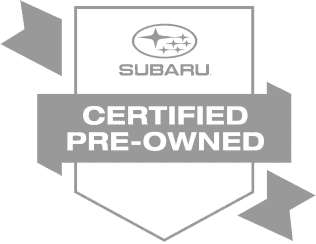
Subaru stands out as a strong contender against Toyota in 2026, offering standard all wheel drive capability, advanced safety, and competitive reliability that now rivals Toyota in several key areas. Toyota still leads in hybrid variety, resale value, and infotainment refinement, so the right choice depends on whether you prioritize all weather confidence and rugged versatility or efficiency and long term value. This guide breaks down safety, reliability, capability, technology, pricing, longevity, and ownership costs to help you decide which brand fits your needs best.
Cascade Subaru is proud to support drivers throughout the region with a full range of automotive services. Whether you are shopping for a new vehicle, scheduling routine maintenance, or looking for factory parts and accessories, our team is here to help you every step of the way. Call us or contact us today to experience dedicated service and expert guidance from people who care about your driving experience.
Are Subaru Cars Better Than Toyota in 2026?
For drivers comparing Subaru vs Toyota in 2026, both brands offer strong options, but each has its strengths. Subaru Cars and SUVs excel in all-weather performance and safety. Toyota shines in hybrid options, resale value, and smooth technology. Choosing the right brand depends on what matters most to you.
Key differences include:
- All-wheel drive and capability: Subaru offers standard all-wheel drive on almost every model. Toyota often limits AWD to specific trims.
- Safety features: Subaru EyeSight technology comes standard on many vehicles, while Toyota Safety Sense is available across most models.
- Fuel options: Toyota leads in hybrids and plug-in hybrids, offering higher fuel efficiency than most Subaru Cars and SUVs.
- Resale value: Toyota vehicles tend to hold value longer, which can save money over time.
- Daily driving comfort: Subaru emphasizes rugged, stable handling, while Toyota focuses on smooth rides and quiet cabins.
Overall, Subaru is ideal for drivers who face changing weather, need reliable all-wheel drive, or enjoy outdoor adventures. Toyota may be better if hybrid efficiency, long-term resale, or high-tech systems are priorities. Both brands provide reliable, safe, and capable vehicles, so the best choice depends on your lifestyle and driving needs.
How Do Subaru and Toyota Compare in Reliability for 2026?
When looking at Subaru reliability vs Toyota, both brands have earned strong reputations over the years. Subaru Cars and SUVs are known for durable engines and consistent performance. Toyota has long been a benchmark for long-term reliability and low maintenance needs. Recent data shows Subaru has closed the gap, matching Toyota in many areas.
Key points to consider:
- Engine and drivetrain: Subaru uses robust Boxer engines with AWD systems that last many miles. Toyota engines are also reliable and often require fewer repairs.
- Maintenance frequency: Subaru may need slightly more routine maintenance, but it is generally easy and affordable. Toyota’s schedule is simple, and parts are widely available.
- Longevity: Both brands can reach 200,000 miles or more with proper care. Subaru reliability vs Toyota shows small differences depending on model and driving conditions.
- Common repairs: Subaru vehicles may require work on the head gaskets or CVTs in older models, while Toyota has fewer common repair issues.
Subaru Cars provide dependable performance that closely matches Toyota’s long-term reliability. With regular care, either brand can last for many miles. For drivers who value consistent performance and durability, Subaru reliability now ranks among the top choices.
Which Brand Performs Better in All-Weather and Off-Road Conditions?
Subaru Cars are built for drivers who face wet, snowy, or rough roads. Standard all-wheel drive on most models provides extra grip in slippery conditions. Toyota offers all-wheel drive on some models, but it is not standard across the lineup. Off-road performance varies depending on the SUV or truck, but both brands have capable options.
Key points include:
- All-wheel drive and traction: Subaru AWD is standard on nearly every model, while Toyota often limits AWD to specific trims.
- Off-road features: Subaru’s X-MODE optimizes traction for steep or uneven terrain. Toyota’s TRD Pro models have upgraded suspensions and skid plates.
- Ground clearance: Many Subaru Cars and SUVs have higher clearance for rough roads. Toyota SUVs also have solid clearance but vary by model.
- Stability and control: Subaru’s symmetrical AWD provides a low center of gravity, improving handling in mud, snow, or rain. Toyota vehicles offer good stability, though some rely on driver skill for extreme conditions.
For drivers who often face rain, snow, or dirt roads, Subaru Cars and SUVs provide dependable all-weather performance. Toyota can handle off-road adventures too, but Subaru gives consistent capability across most of its lineup. Choosing between them depends on how often you need AWD and rugged performance.
Is Subaru or Toyota Safer for Drivers in 2026?
Many drivers wonder, are Subarus better than Toyotas when it comes to safety? Both brands are highly rated, but they take different approaches. Subaru vehicles include EyeSight Driver Assist Technology on most models, while Toyota equips many SUVs with Safety Sense features. Both offer strong protection, but Subaru’s standard features help maintain stability in challenging conditions.
Here’s how the safety systems compare:
- Driver assist systems: EyeSight provides adaptive cruise control, pre-collision braking, and lane-keeping help. Toyota Safety Sense offers similar tools, including emergency braking and lane alerts.
- Vehicle stability: Subaru’s engineering gives a lower center of gravity for better handling, while Toyota SUVs vary by model.
- Crash protection: Both brands use strong frames and crumple zones to absorb impact in collisions.
- Consistency of safety: Subaru includes these features across nearly all models, while Toyota’s safety tools can depend on trim level.
Subaru vehicles provide reliable safety and confidence in most driving situations. Toyota also protects well, but the consistent safety features across Subaru models give it a slight edge for many drivers.
Which Brand Offers Better Technology and Everyday Comfort?
Subaru and Toyota both deliver modern technology and comfortable interiors in 2026. Subaru models often focus on practicality, providing roomy cabins and intuitive layouts. Toyota vehicles tend to have smoother infotainment systems and more refined finishes. Daily usability can vary depending on whether you commute, run errands, or travel with family.
Here’s a closer look at what each brand offers:
- Infotainment systems: Subaru offers large screens and simple menus, but some models can feel slow. Toyota systems are smooth and responsive, with clear graphics.
- Interior comfort: Subaru cabins are spacious and practical, with easy-to-reach controls. Toyota interiors are well-crafted and feel upscale, even in mid-range models.
- Ergonomics and layout: Both brands focus on driver comfort, but Subaru emphasizes simplicity and functionality. Toyota adds a touch of style while keeping controls intuitive.
- Daily usability: Subaru’s designs suit families and outdoor activities, with flexible storage and durable materials. Toyota’s interiors are quiet, smooth, and ideal for longer commutes.
For drivers who prioritize practical space and functional layouts, Subaru provides comfort that works for most lifestyles. Toyota offers a refined and smooth cabin experience, making it a strong choice for commuters or those who value a polished interior.
Does Subaru or Toyota Deliver More Value for the Price in 2026?
Subaru Cars and SUVs offer strong value, especially with standard all-wheel drive included on most models. Toyota also provides good value, thanks to competitive pricing and high resale value. The choice depends on what features matter most and how you plan to use the vehicle.
Here are the key factors to consider:
- Standard features: Subaru includes AWD, driver assist systems, and practical storage across most models. Toyota may require higher trims for similar features.
- Pricing: Base prices for Subaru models are competitive, while Toyota offers a wide range of trims to fit different budgets.
- Resale value: Toyota vehicles typically hold their value longer, which can reduce overall ownership costs. Subaru resale is strong, but slightly lower than Toyota in some models.
- Trim levels and features: Both brands offer multiple trims. Shoppers should compare features such as tech, safety, and comfort to get the most value.
Drivers who want all-wheel drive and useful features without paying extra will find strong value in Subaru Cars and SUVs. Toyota offers long-term savings through resale and a wide selection of trims, making both brands smart choices depending on your priorities.
Which Brand Has the Advantage in Longevity and Ownership Costs?
Subaru vs Toyota comparison 2026 shows that both brands are built to last. High-mileage drivers often report reaching 200,000 miles or more with proper care. Ownership costs can differ depending on maintenance, repairs, and parts availability. Evaluating long-term costs helps drivers in Washington state make the best choice for their budget.
Important factors to consider:
- Vehicle longevity: Both Subaru and Toyota vehicles can handle high mileage when maintained regularly.
- Maintenance and repairs: Subaru may need routine attention on specific components, but parts are easy to find. Toyota generally has fewer common repairs, which can save money over time.
- Parts availability: Both brands have wide dealer and aftermarket support, making parts easy to source.
- Long-term cost: Toyota resale value may offset some ownership costs. Subaru offers strong reliability and standard features, which can provide added value for many drivers.
Drivers can expect durable vehicles from both brands, but ownership costs depend on usage and care. For those who value long-term reliability and accessible parts, Subaru provides solid performance, while Toyota can offer lower repair frequency and strong resale.
Which Brand Is the Better Choice for Different Types of Drivers in 2026?
Deciding between Subaru and Toyota depends on your lifestyle, driving habits, and priorities. Subaru Cars and SUVs excel in safety, all-wheel drive capability, reliability, and versatility. Toyota stands out with hybrid options, strong resale value, and smooth infotainment systems. Considering the needs of drivers in Holmes, Vantage, and George can help guide the choice.
Here is a breakdown by driver type:
- Safety-focused drivers: Subaru’s EyeSight technology and standard AWD give confidence in rain, snow, or rough roads.
- Outdoor and adventure drivers: Subaru SUVs with higher ground clearance and X-MODE handle trails and rugged terrain with ease.
- Commuters and tech enthusiasts: Toyota hybrids and smooth infotainment systems provide efficiency and a polished daily experience.
- Long-term value seekers: Toyota’s high resale value can reduce ownership costs over time, while Subaru reliability and included features give strong upfront value.
For drivers in Holmes, Vantage, and George who need all-weather stability, versatile cargo space, or rugged capability, Subaru Cars and SUVs are a strong choice. Those who prioritize hybrid fuel savings, smooth daily commutes, or resale value may lean toward Toyota. Cascade Subaru is ready to help compare options, answer questions, and find the best fit for every driver.
Frequently Asked Questions
If you’re trying to decide between a Subaru and a Toyota, you likely have questions about reliability, safety, efficiency, and which vehicle fits your lifestyle best. Knowing the answers can help you make a smart choice.
How do Subaru and Toyota compare on reliability, resale, and long-term ownership?
Subaru Cars and SUVs are highly reliable, with strong longevity when properly maintained. Toyota has a legendary reputation for reliability and tends to hold higher resale value. Both brands are durable, but Toyota may offer slightly lower long-term ownership costs due to resale strength.
Which brand offers better safety tech and crash-test ratings?
Subaru vehicles come standard with EyeSight Driver Assist Technology and AWD on most models. Toyota vehicles feature Safety Sense systems. Both brands earn top crash-test ratings, but Subaru’s standard AWD gives it an edge in all-weather safety.
How do fuel economy and drivetrain choices compare between Subaru and Toyota?
Subaru mostly offers gasoline engines with standard AWD. Fuel economy is good but typically lower than Toyota hybrids. Toyota has a wider selection of hybrid and plug-in options, often with higher efficiency and similar power.
Which brand has better dealer support and parts availability in my area?
Both Subaru and Toyota have widespread dealer networks and parts availability. Subaru parts are common and affordable, and Toyota parts are also easy to find with competitive pricing. Both brands provide reliable service support.
For which buyer types (off-road, family, commuter) does Subaru typically outscore Toyota?
Subaru Cars and SUVs are stronger for off-road or outdoor-focused drivers due to AWD and higher ground clearance. Families also benefit from practicality and cargo space. Toyota may be preferred for commuters or hybrid-focused buyers who prioritize fuel economy and resale.
Knowing the answers to these questions can save you time, money, and stress when choosing your next vehicle. Use this information to find the Subaru or Toyota that best fits your needs and driving style.
Find Your Ideal Subaru at Cascade Subaru
If you’re in Holmes, Vantage, or George, Cascade Subaru is here to help you find the perfect vehicle. Our wide selection of Subaru Cars and SUVs makes it easy to find a model that fits your lifestyle, whether you need space for family trips or extra cargo for adventures.
Want to see how much space each model offers? Check out Subaru lineup seating capacities to compare passenger room and cargo options across the full lineup. If you are interested in the Forester, our Forester trim levels guide breaks down each trim’s features, technology, and comfort. For those considering the Outback, the Outback trim levels guide explains the differences between trims so you can choose the right balance of value and amenities.
Our team at Cascade Subaru is ready to answer questions, schedule test drives, and assist with sales, service, and parts. Contact us today or stop by our dealership to see how our Subaru Cars and SUVs can match your lifestyle and driving needs.





